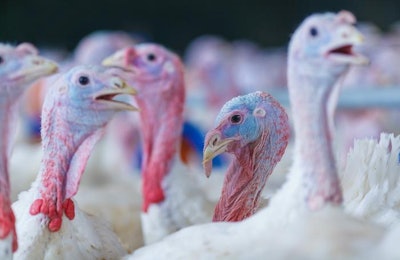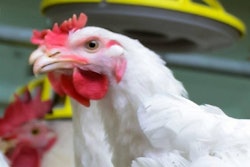
As consumers continue to place importance on sustainability in the food system, carbon emissions and climate change could be the key sustainability metrics to be discussed in the next few years, said Jayson Lusk, distinguished professor and head of the Purdue University Department of Agricultural Economics.
That could present opportunities for the U.S. turkey industry, he said on February 10, 2021, while speaking at the 2021 Virtual National Turkey Federation Convention.
Because the carbon footprint of a company or an industry is more measurable than many other areas consumers relate to sustainability, “it’s going to be one that I think will dominate a lot of debate about what sustainability means,” said Lusk.
“I think that’s actually an opportunity for an industry like this, that has seen a lot of real efficiency improvements. It’s a real opportunity to talk about the reduction of carbon emissions per pound of meat produced, where if you are comparing turkey to some other animal proteins, particularly beef, you’re going to look more favorable there just because the animals are different,” Lusk said, pointing out that since turkeys aren’t ruminant animals like cattle are, methane emissions aren’t of as much concern for consumers.
Sustainability: Perception versus reality
While discussing sustainable agriculture, Lusk said a major concern of his is that what many people view as a more sustainably produced product, may not be.
“One of my frustrations at the moment is that people use a lot of existing labels, even labels that don’t really have a lot of meaning like “all natural,” as a signal for sustainability, when it may or may not be,” he said.
He used the organic label as an example. For many, organic foods are viewed as more sustainable than conventionally produced foods, they “may or may not be more sustainable, at least on some metrics,” he said. “But I think that’s the information available to consumers now, so they make inferences that are often maybe not always consistent with the facts.”















